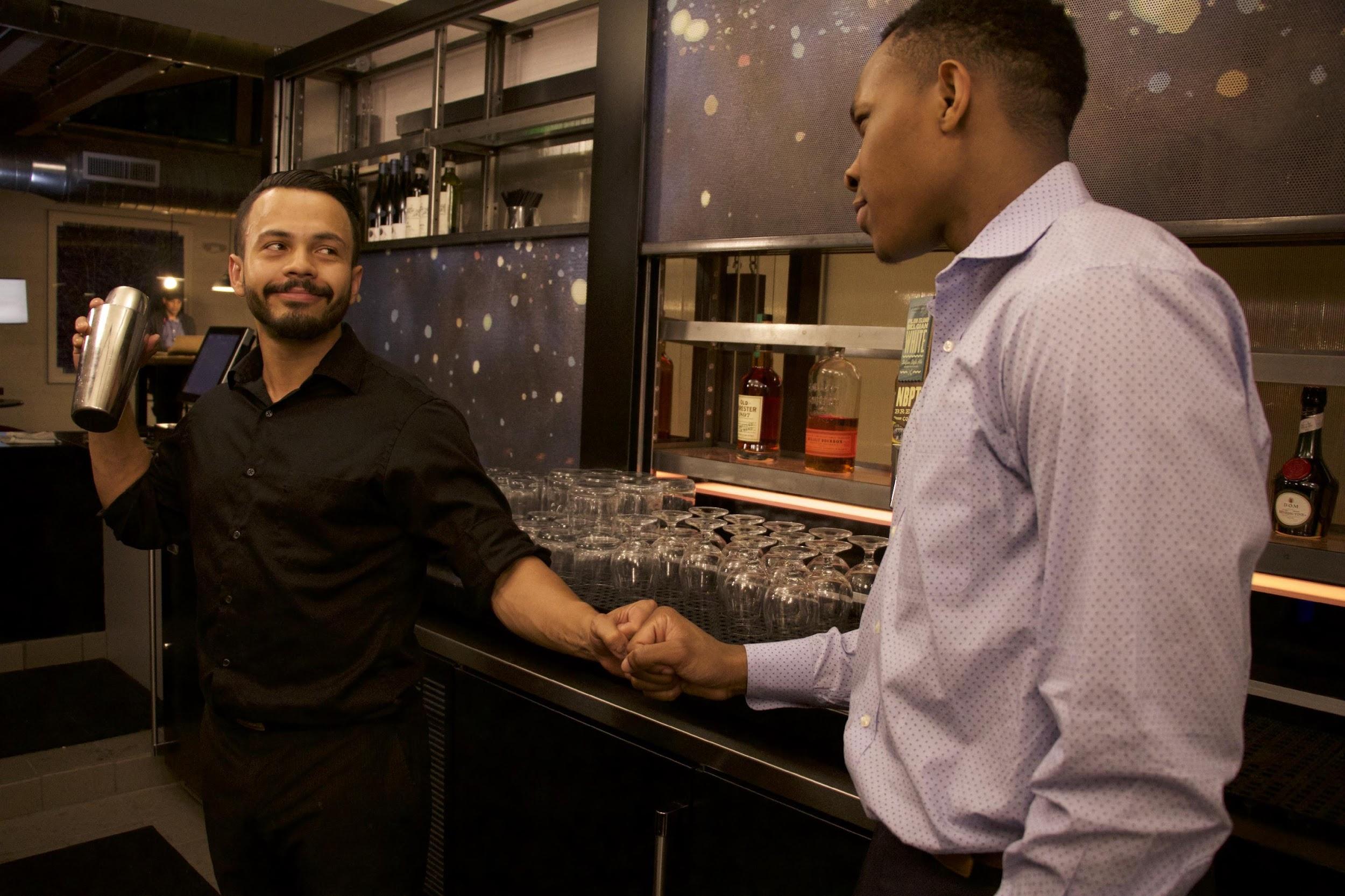Whether you’re working in the kitchen or on the dining room floor, much of what will determine your success in the restaurant industry is your ability to communicate and work with others.
There will come a time when you will not see eye to eye with a coworker. It’s about as inevitable as a foreign diner not leaving a tip. You cannot control conflict from happening. However, you do have control over how you react to conflict.
Conflict isn’t what causes the trouble. Conflict is actually a good thing! We should challenge each other and the status quo. We should feel comfortable enough to voice our opinions. We should embrace conflict! Conflict cues items that need improvement.
The trouble comes when our emotions swell as a result of conflict. Conflict is not to blame. We are! We simply allow ourselves to get consumed by emotions. It does not serve you, the person you are in conflict with, nor the team.
The first step to conflict resolution is to keep your emotions in check. Just like you have a better chance of fixing a car’s engine if you know how it works, you have a better chance of keeping your emotions in check by simply understanding how the brain works.

Emotions originate in your limbic system. Signals come from the sensory organs to thalamus where the signal is translated to brain language. The majority of the signal then goes to the visual cortex where it gets analyzed. If the response is emotional, it goes to the amygdala. BUT noticed how I said the MAJORITY of info goes to the visual cortex. A small percentage of the message bypasses the visual cortex and goes directly to the amygdala. If the bypassed message is strong enough, it can cause an emotional melt down of the rational brain.
Good news! Humans have developed a more evolved, more rational part of the brain called the frontal lobe. This part of your brain can serve as the “executive” and has the power to override your primitive, emotional limbic system.
The trick is to be aware enough to recognize negative emotions and to understand that emotions are not real. They’re made up. Emotions only exist in your head. We control our emotions. Just because we experience a negative emotion does not mean we have to be consumed by it. As I learned from Jerry Posner in episode 273, when we recognize the negative emotion, simply “snip it” and choose to be positive. You literally have the ability to CHOOSE to be happy.

To take it even further, as a leader, it is your responsibility to choose the high road. When you let your emotions get the best of you, and negativity consumes you, your negative energy is going to stretch far beyond the person you’re feeling animosity toward.
Once you have your emotions under control it is time to hear the other person out. Listen, first. Try to understand where they are coming from. Imagine yourself in the position they are in. Empathize with them. After listening, you might notice they have information you are unaware of.

If you jump to conclusions, make accusations, and blame fault, the only reaction you will get from the person you’re in conflict with will be negative emotions. They will immediately get defensive and angry. A wall will go up and no progress will be made.
After you’ve heard their side of the story, but before you’ve shared your side of the story, share with them your hope for a positive outcome. Let them know you want to create win-win situations. By doing this you are putting the other person’s emotions and suspicions of you to rest. You are showing that you are not a threat. By taking the time to understand the situation you are empowering yourself with more information. This information can be used to deliver your points. Even better, you can uncover information that proves you are at fault. There are far fewer ways to develop trust and rapport with someone than admitting you’re wrong.
At the end of it all, it doesn’t matter who’s right or wrong. What matters is that we resolve the issue and the team improves as a result.


